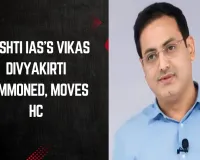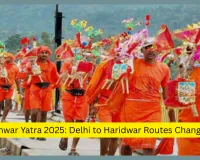President Accepts VP Jagdeep Dhankhar's Resignation
Digital Desk
.png)
President approves the resignation of Vice President Jagdeep Dhankhar and forwards it to the Home Ministry for further action. Dhankhar is unlikely to attend his official farewell ceremony.
President Draupadi Murmu has approved the resignation of Vice President Jagdeep Dhankhar. The President has sent his resignation to the Home Ministry for further action. Dhankhar will not attend the farewell ceremony. Nor will he give any farewell speech.
Earlier, Vice President Jagdeep Dhankhar did not attend the proceedings of the Rajya Sabha on Tuesday. JDU MP Harivansh started the proceedings of the Upper House at 11 am. After this, the presiding Ghanshyam Tiwari informed the House that the President has accepted Dhankhar's resignation.
Let us tell you that the 14th Vice President of the country, Jagdeep Dhankhar, suddenly resigned from his post on the night of 21 July. The tenure of 74-year-old Dhankhar was till 10 August 2027. He had said in a program on July 10, 'If God is pleased, I will retire in August 2027.
Neither the political pundits nor the opposition are digesting the fact of resigning citing health reasons. During the proceedings of Parliament, the relationship between the opposition and Jagdeep Dhankhar was quite bitter. The opposition has even called Dhankhar a dictator, headmaster, government spokesperson. Despite this, it is raising questions on his sudden resignation.
The first Vice President of the country against whom impeachment was brought
In the history of 72 years of parliamentary democracy in the country, Dhankhar was the first Rajya Sabha Chairman and Vice President against whom an impeachment motion was brought in December 2024. Which was later rejected due to technical reasons. The opposition had been accusing Dhankhar of bias. The opposition claimed that he only suppresses the voice of the opposition and the questions raised by their MPs. If we look at Dhankhar's previous tenure, he held many important posts, but he could not see his tenure completed. The only exception is his five years as a one-time MLA.








3.png)
.jpg)
.jpg)
.png)
